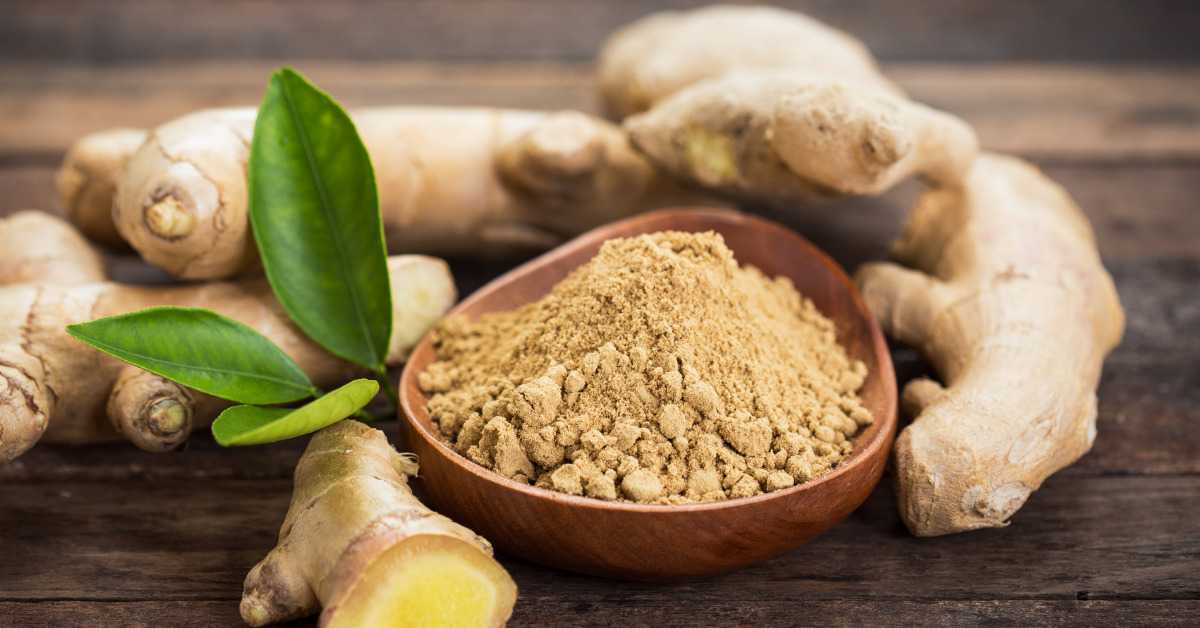Many of you will have experienced nausea at some point. It’s never fun, and it can happen in various circumstances, including pregnancy and travel. Anti-nausea medications are frequently prescribed to help alleviate the condition. Unfortunately, such medications can have adverse side effects, such as drowsiness. Here are some natural home remedies for nausea that don’t require the use of medicines.


1. Ginger
Ginger is a popular natural remedy for treating nausea. Researchers are still trying to figure out how it works. Ginger is believed to contain compounds that act in a similar manner to anti-nausea drugs. Numerous studies have found that ginger reduces nausea in a variety of situations.
Ginger, for example, may reduce nausea experienced during pregnancy and after chemotherapy or an operation. Some studies even report ginger as effective as some prescription medications, with fewer negative side effects.
While there is no consensus regarding the optimal dose, most studies utilized 0.5 to 1.5 grams of dry ginger root per day. The majority of people can safely consume ginger. You may need to limit your ginger intake if you have low blood pressure or low blood sugar, or if you’re taking blood thinners.
Some experts also question whether eating dried ginger while pregnant is safe. While there are few studies on ginger, those that have been conducted on healthy pregnant women report a low risk of side effects. As a result, most experts believe ginger is a safe and effective remedy during pregnancy.


2. Lemon
Like those of a freshly sliced lemon, citrusy scents may help pregnant women feel less nauseated. Cutting a lemon or scratching its peel may have a similar effect because it allows the essential oils in the lemon to be released into the air. When you’re away from home, a vial of lemon essential oil might be a good substitute.
3. Peppermint
Peppermint is one of the best home remedies to get rid of nausea which can help you get rid of stomach and stomach problems. The menthol in mint helps you in relieving stomachaches. You can also try mint tea and smell its oil. Research has shown that just the scent of mint helps ease nausea, but if you also experience nausea, you should look for another way. It is also not recommended to drink in acid reflux or gastric disease. Consult a gastroenterologist immediately if you have a severe gastrointestinal problem or illness.


4. Acupuncture and Acupressure
The techniques of acupuncture and acupressure have been shown to relieve nausea.
Acupuncture and acupressure are traditional Chinese medicine techniques for treating nausea and vomiting. In acupuncture, thin needles are inserted into specific points on the body, while in acupressure pressure is used instead of needles to stimulate the same points. Both techniques work by stimulating nerve fibers in the brain and spinal cord, which transmit signals to the brain and spinal cord. These signals are thought to be capable of reducing nausea.
Acupuncture has also been shown to help with nausea during pregnancy, though more research is needed. In most studies that demonstrated a benefit, the Neiguan acupuncture point, also known as P6 or the inner frontier gate point, was stimulated. Simply place your thumb 2–3 finger-widths down from your inner wrist, between the two prominent tendons, to stimulate this nerve on your own.
5. Control Your Breathing
Using controlled breathing techniques is a free and effective home remedy for nausea. Nausea can also be reduced by taking slow, deep breaths. In one study, researchers tried to figure out which aromatherapy scent was the most effective at reducing nausea after surgery. While exposed to various scents, participants were instructed to breathe in slowly through the nose and exhale three times through the mouth. There was a decrease in nausea in all participants, including those in the experimental group, and this led the researchers to believe that the relief was due to the controlled breathing.


6. Relaxation Techniques
Muscle relaxation may assist in nausea relief. Progressive muscle relaxation is one technique people have used to achieve this effect (PMR). To achieve physical and mental peace, people must tense and relax their muscles continuously. According to a recent study, PMR is an effective way to reduce the severity of chemotherapy-induced nausea. Massage is another method for releasing muscle tension.
7. Some Spices
Several spices are popular home remedies for nausea that are frequently recommended. The majority of these spices have only anecdotal evidence to back them up. The anti-nausea properties of these three spices, on the other hand, are backed up by scientific evidence:
- Fennel powder may help women by reducing menstrual symptoms such as nausea.
- Cinnamon: Cinnamon has been shown to reduce the severity of nausea experienced by women during menstruation.
- Cumin extract: In people with IBS, it may help with abdominal pain, nausea, constipation, and diarrhea.
While these three spices may relieve nausea in some people, there are few studies on the subject, and more research is needed before any conclusions can be drawn.
8. Take Vitamin B6
Vitamin B6 is a safe and potentially effective alternative to anti-nausea medications for pregnant women experiencing nausea. Vitamin B6 is becoming more widely recommended as an alternative to anti-nausea medications for pregnant women who prefer not to take them. Several studies have found that vitamin B6, also known as pyridoxine, supplements can effectively reduce nausea during pregnancy.
As a result, several experts recommend taking vitamin B6 supplements as a first-line treatment for mild nausea during pregnancy. Vitamin B6 doses of up to 200 mg per day are generally regarded as safe during pregnancy and have few side effects. It may be worth a shot!


The Takeaway
Nausea can strike in various situations and can make you feel awful. Without using medications, the natural remedies listed above can help reduce nausea. Nausea is a distressing and often unavoidable condition. On the other hand, symptoms can be managed using some of the methods discussed in this article. Because the causes and symptoms of nausea differ from person to person, it’s a good idea to try various approaches. However, if your nausea persists, you should seek additional advice from your healthcare provider.
FAQs
1. How to know if it’s anxiety or nausea?
You might feel a little queasy during a period of high anxiety, similar to the “butterflies in your stomach” feeling you get before giving a public presentation or going on a job interview. This type of nausea may be fleeting, whereas anxiety-related nausea can leave you feeling sick to your stomach.
2. How to get rid of nausea fast?
The tips mentioned in this article are sure to help you get rid of nausea fast.
3. What can be the reason for constant nausea?
Nausea is not a disease in and of itself, but it can be a symptom of a number of digestive system disorders, including: Gastroesophageal reflux disease (GERD) Peptic ulcer disease is a type of stomach ulcer. Slow stomach emptying or digestion due to nerve or muscle problems in the stomach (gastroparesis)
4. Is nausea a symptom of depression?
Though the emotional symptoms of depression (such as sadness and hopelessness) are the most common, depression can also cause physical symptoms such as nausea, diarrhea, pain, and weight changes.
Book an appointment now, to answer all your queries. You can book an appointment with the top general physicians in Pakistan through Marham by calling at Marham helpline: 0311-1222398 or by online booking facility through the website or Marham mobile app.
Can’t Find The App?
Android Users:
https://play.google.com/store/apps/details?id=controllers.marham.marhammed&hl=en
Drop a review for us at Playstore if you’ve had a good experience!
iPhone Users:
https://apps.apple.com/pk/app/marham-find-a-doctor/id1095243102
Stay Home. Stay Safe!

